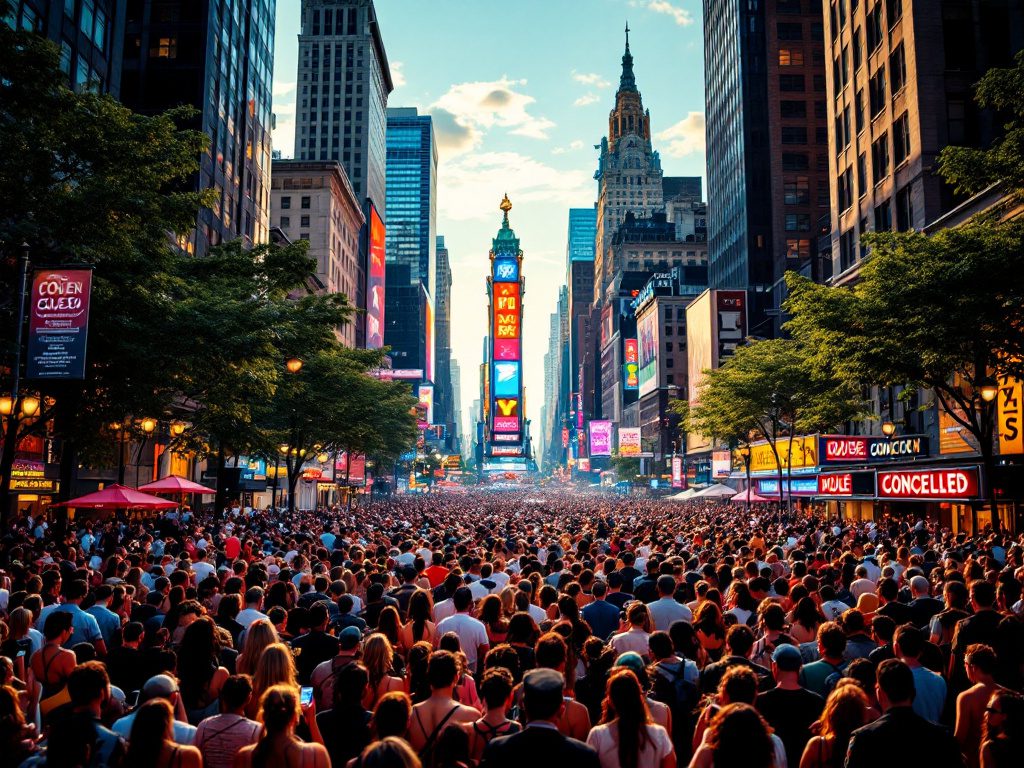The Tension Between Safety, Free Speech, and Political Expression
Early summer in New York is typically marked by anticipation for Central Park’s SummerStage concerts, magnets for music lovers and cultural diversity. Yet the planned June 26 “Pride With Kehlani” benefit show, set to be a highlight of this season, has instead spotlighted a fraught intersection of safety concerns, political activism, and the boundaries of free expression. The abrupt cancellation of the concert—at the urging of Mayor Eric Adams’ administration—raises searching questions about whose voices are protected and whose are silenced when activism crosses into contentious political territory.
Similar unrest rippled last month when Cornell University canceled Kehlani’s anticipated Slope Day performance, citing controversies over her outspoken activism in solidarity with Palestinians amid the ongoing Israel-Gaza conflict. With NYC’s own mayoral office now echoing concerns about “security and safety issues,” and event organizers pointing to heightened demands already straining city resources during Pride, the cancellation reverberates far beyond one artist or one show. It reveals a broader anxiety—can public spaces remain open forums for provocative art and activism in an era of polarization and collective trauma?
Art, Activism, and the Anatomy of Controversy
Kehlani’s career has long straddled the terrain between creative expression and political statement. Her latest music video included explicit support for Palestinians, and she has publicly embraced phrases like “intifada,” which, for many, conjure decades-old debates about resistance and violence. Her social media unapologetically foregrounds her solidarity with Gaza, and she’s frequently amplified Palestinian voices while denouncing the Israeli government’s military campaign. Conservative groups and some university officials have charged that such activism veers into antisemitism—a claim Kehlani has systematically rejected.
In her own words: “I’m not antisemitic or anti-Jew. I’m anti-genocide, anti-actions of the Israeli government, anti-extermination of entire people, anti-bombing of innocent children, men, women. That’s what I’m anti.” According to Pew Research’s 2023 State of Free Speech report, nearly two-thirds of Americans worry that public institutions are failing to adequately distinguish legitimate criticism of foreign governments from hate speech or discrimination, fueling a climate of self-censorship and mistrust.
The timing of both cancellations is especially painful for the LGBTQ+ community, which has long depended on art, activism, and physical gathering spaces as vehicles for visibility and resistance. Kendrick Sampson, founder of BLD PWR, emphasized in a recent op-ed for the Los Angeles Times: “Artists of conscience have never been more necessary. Attempts to ban or silence them merely double down on repression and drive communities apart.”
“No one should ever conflate criticism of governments with hate against a people. When dissent is stifled by spurious security fears, democracy itself is made weaker—not stronger.”
The city’s official explanation, communicated via the Adams administration’s letter, pointed to both the controversy after Cornell’s cancellation and “heightened security demands in Central Park and throughout the City for other Pride events.” Yet the concert remained on SummerStage’s and Central Park’s online listings as late as Monday night, deepening confusion for fans and fueling suspicions that decisions are being made with more political calculation than logistical necessity.
At the Crossroads: Political Backlash Meets Progressive Values
Beyond that, what does this moment mean for New York’s tradition as a bastion for dissent, diversity, and unfiltered creative expression? Historian Jelani Cobb reminds us, “Art is always at the front lines of major social movements.” New York City, for decades, has prided itself as a beacon for marginalized voices—whether in the Stonewall riots that catalyzed Pride or the anti-war demonstrations that once filled its streets. To watch a Pride-linked concert by a queer artist of color canceled for political views is, frankly, chilling for those who regard the city as a sanctuary for social justice.
It’s no surprise that the decision ignited spirited debate. To some conservative policymakers, Kehlani’s rhetoric is destabilizing at a time of troubling antisemitism; to progressives, the cancellation reeks of state overreach and undermines the very democratic exchange that Pride was meant to celebrate. Rather than settling for easy binaries, New Yorkers are left reckoning with fraught questions: Who decides what activism is acceptable? Are public spaces less safe because a performer takes a stand? Or are they endangered when institutions muzzle dissent under the guise of security?
This is hardly the first chapter in the ongoing saga of artists being targeted for political expression. Recall, as Harvard Law School’s Jeannie Suk Gersen noted in The New Yorker, local governments have long deployed “public safety” as a pretext for suppressing unpopular or minority viewpoints—from antiwar performers during the Vietnam era to Black Lives Matter rallies in cities nationwide. Each time, the cost is not only to the artist, but to an entire community’s ability to feel represented and heard.
A Call for Nuance and Real Public Safety
A closer look reveals the perils of equating disruption with danger. According to a 2022 Brennan Center report, actual violent incidents at concerts with strong political content are rare in New York, despite routine warnings from officials. It is also worth noting that, as major Pride events continue across the city, organizers and participants alike will be looking for leaders who champion—and not restrict—the right to assemble and speak truth to power.
For those who prize equality, solidarity, and authentic public dialogue, the episode serves as both warning and invitation. The city’s legendary resilience and inclusiveness will only endure if officials resist expedient appeals to “security” as a stand-in for genuine democratic engagement. As Kehlani and her supporters have emphasized: the true threat to safety arises not from outspoken artists, but from a climate where hard questions are silenced, and where communities lose the chance to come together and find common purpose—even in disagreement.
At issue is more than a concert or a controversy. At stake is the soul of our public square—and the enduring promise that New York, at its best, keeps space for uncomfortable truths as well as joyful celebration.

